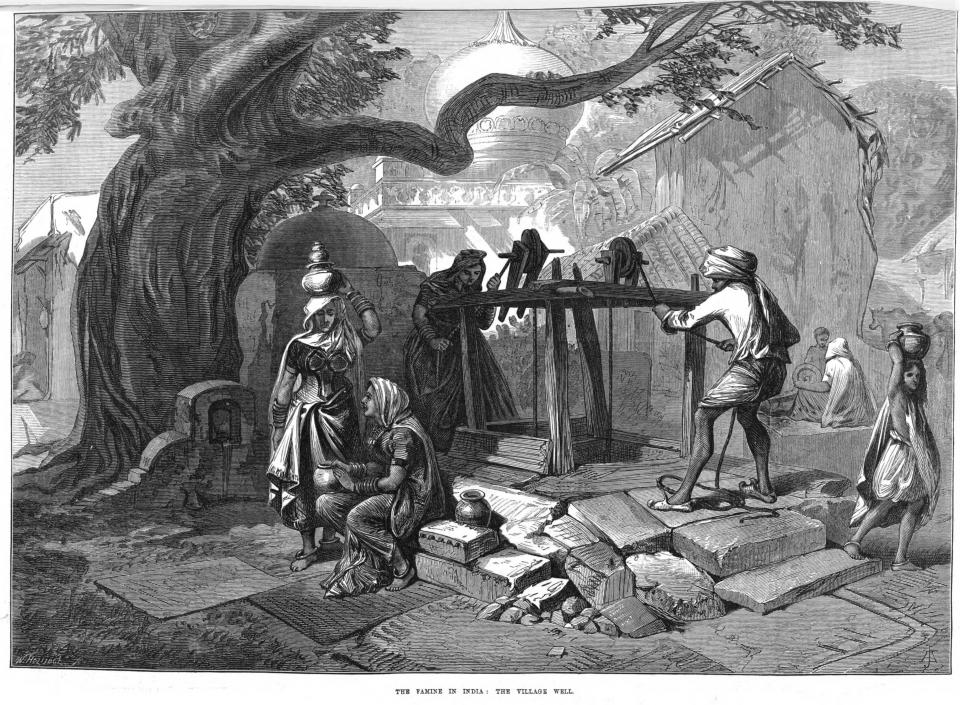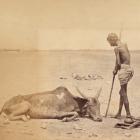Conclusions
All told, scholars now agree, just as British administrators and Indian nationalists at the time recognized, that the late-nineteenth century famines in India were not purely food shortages, but rather were complex crises resulting from the impacts of drought and crop failure on market systems within the colonial Indian society and economy.46

The famine in India: The village well
The famine in India: The village well
Drawing by H. Johnson. The Illustrated London News 15 June 1874. Digitized as part of the Google Book Search project.
 This work is licensed under a Creative Commons Public Domain Mark 1.0 License.
This work is licensed under a Creative Commons Public Domain Mark 1.0 License.
Recovery from famines’ consequences in India was achieved unevenly across society, and there were severe impacts on population growth, life expectancy, and political, social, and economic security. The study of these events reveals famine to be a catastrophic event marked not only by failure of rains; rather, it is a consequence of a complex matrix of environmental and cultural factors including changes in weather, disease vectors, infrastructure development, economic systems, social relations among colonizers and colonized people, and specific actions by individuals and governments.

The famine in India: Women grinding corn
The famine in India: Women grinding corn
Public Domain. Digitized as part of the Google Book Search project.
 This work is licensed under a Creative Commons Public Domain Mark 1.0 License.
This work is licensed under a Creative Commons Public Domain Mark 1.0 License.
46 Davis, Late Victorian Holocausts, 112 and 19.
















